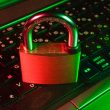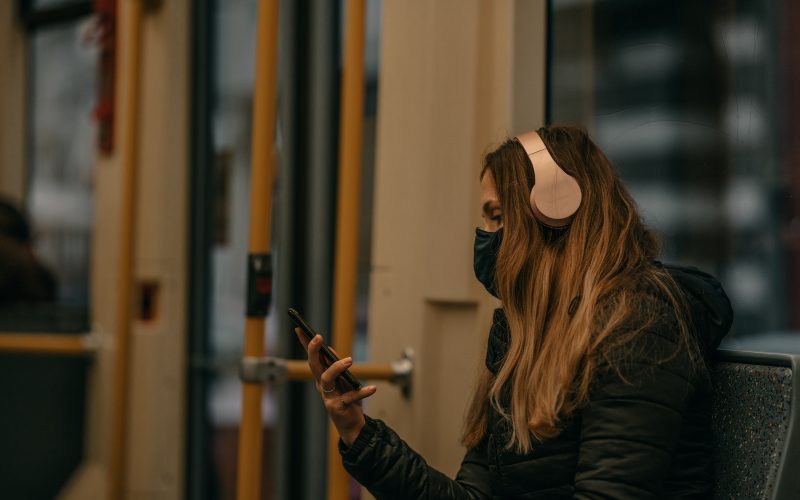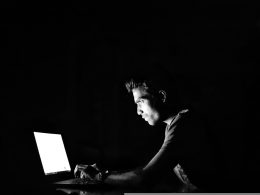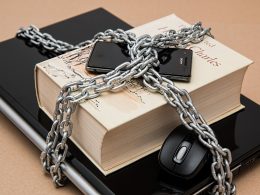Do you visit libraries, malls, coffee shops, and other public places? You’ve likely connected to free Wi-Fi networks without a second thought about the dangers of public Wi-Fi. However, public Wi-Fi poses a risk to you and your sensitive information.
Hackers could easily collect information like your bank account details, credit card numbers, or personal information if you don’t use proper cybersecurity measures. From there, you could become a victim of identity theft.
This article will cover the risks public networks pose to you and how to stay safe on public Wi-Fi networks.
Public Wi-Fi Risks
Malware
Malware, short for malicious software, is software designed to damage your devices and gain unauthorized access to information. Hackers can easily use an unsecured Wi-Fi connection to distribute malware.
For example, if you allow files to be shared with you while connected to an unsecured network, a hacker can put malware into that file. Hackers can also intercept the connection point between your device and the network and place a pop-up window on your screen. If you click the pop-up window, malware infects your device.
Obtaining Personal Information
Public Wi-Fi networks don’t have to host malicious actors for your information to be collected and sold. Unless you have taken measures to prevent tracking your devices, some networks automatically collect information from the connected devices. The information they collect can include your email address, location, and the websites you visit.
Man In The Middle Attack
A man-in-the-middle attack is when a hacker places himself in the middle of a conversation between a user and an application. He then either eavesdrops or pretends to be one of the parties. The hacker conducts a man-in-the-middle attack to steal personal information.
Your personal information can include financial details, login credentials, and more. They can also be embedded in mobile apps so that hackers can see if they’re virtually mirroring your device’s screen. Once a malicious actor has your personal details, they can sell your information on the dark web or use it for identity theft.
How To Protect Yourself When Using Public Wi-Fi
Utilize A VPN
A VPN (virtual private network) connection hides your IP address and protects your data by establishing a secure, encrypted connection between your device and the internet. A secure and encrypted connection makes it difficult for malicious actors to conduct cyber attacks on you.
Use SSL Connections
SSL is short for “secure sockets layer.” SSL connections are how websites protect sensitive information being sent between systems. Be sure to click or enable the “Always Use HTTPS” option on websites you visit.
If you’re visiting a website that requires you to log in, reconsider if you need to visit that website at that moment. Many people reuse their usernames and passwords, and just by intercepting one password, a hacker may be able to gain access to multiple accounts.
Turn Off Bluetooth And Sharing
Prevent malicious actors from being able to send you files that could contain malware or viruses by turning off file-sharing. Remember to turn off Bluetooth to prevent hackers from attempting to connect to your device.
Don’t Open Or Send Private Information
Wait to check your bank account or send that confidential file to your boss. The more connections you make on an unsecured Wi-Fi network, the more chances you give hackers to intercept your sensitive information.
Use An Antivirus
Antivirus does not protect you from all the dangers listed in this article, but it does help protect your device from malware and viruses. It’s recommended to protect yourself and your device by using an antivirus.
Enable Firewall
Many users disable their firewall due to “connectivity” issues or wanting to download a file that the firewall is blocking. However, too many users forget to re-enable the firewall afterward. A firewall prevents unauthorized access into or out of a computer network, protecting you from unsafe internet connections. That’s why a disabled firewall could make you an easy target for hackers.
If You Have An iPhone, Ensure “Private Address” Is On.
Apple’s iOS 14 update included an option to connect to Wi-Fi networks using a “private address.” A private address prevents your device’s data from being tracked and collected. Read our article for more information on enabling “Private Address.”
This article includes effective practices to reduce your likelihood of experiencing a cyber attack, but purchasing personal cybersecurity is the best way to protect yourself. Agency, a cybersecurity company, offers business-level cybersecurity that prevents, monitors, and mediates cyber attacks if they were to arise.
Agency’s services include:
- Next-Gen Antivirus/EDR
- VPNs
- ID Theft Coverage
- Active Dark Web Monitoring
- Personal Information Removal
- Active Security Monitoring & Response by US Professionals
Take steps to protect your privacy and security by purchasing affordable personal cybersecurity! By signing up for the newsletter, you could receive a free one-month trial.







